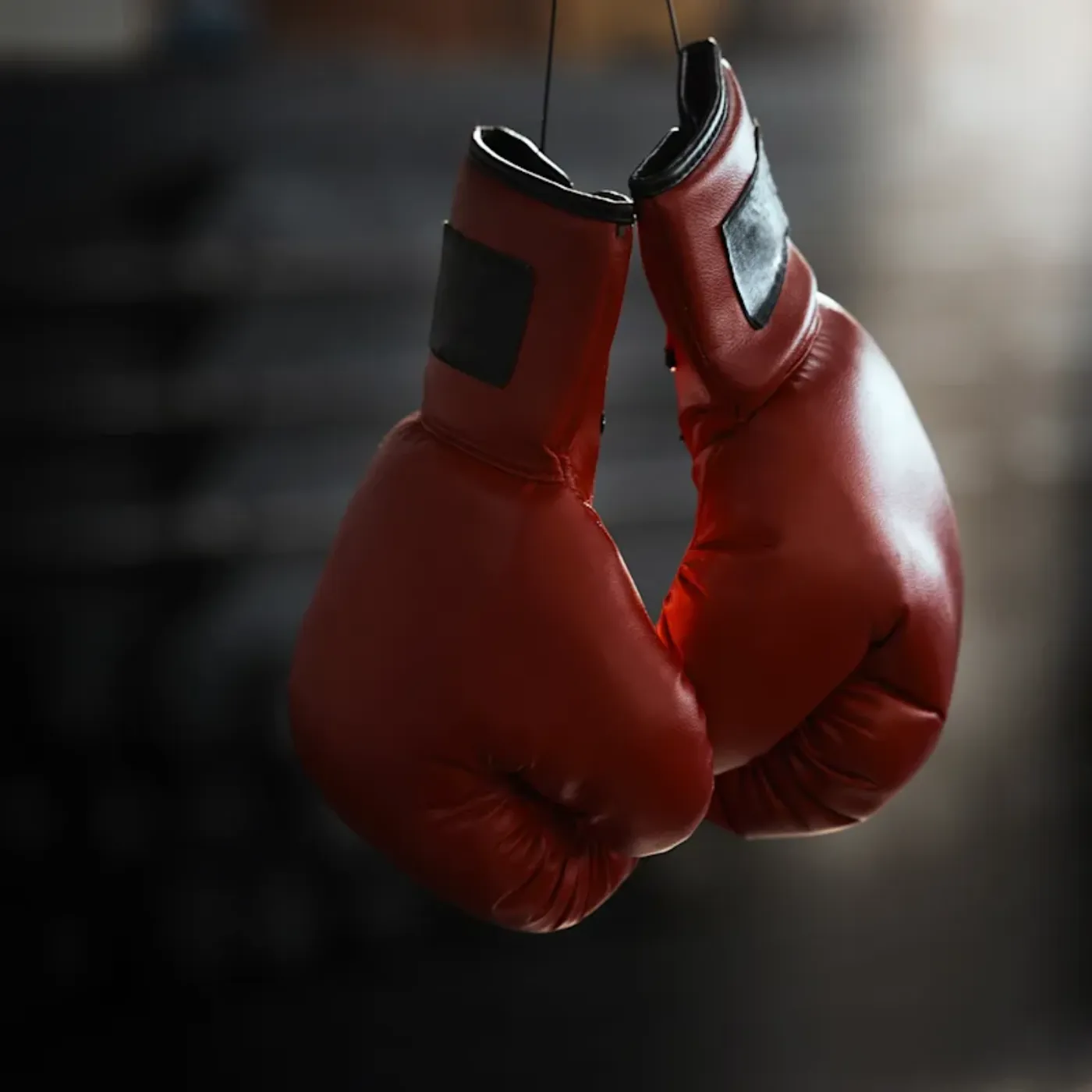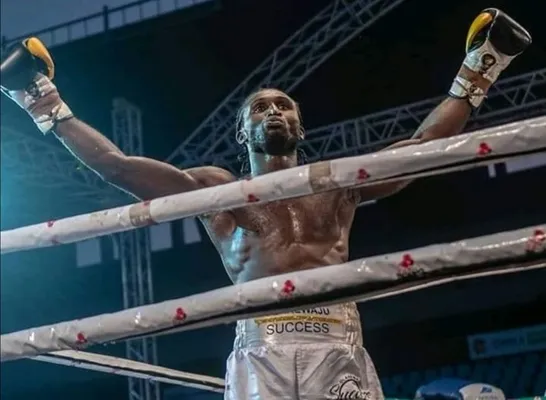

Tragedy in the Ring: Nigerian Boxer Dies After Collapsing During Unsanctioned Fight
The boxing world has been left in mourning after the sudden and tragic death of Nigerian fighter Gabriel Oluwasegun “Success” Olanrewaju. The 40-year-old light heavyweight collapsed in the third round of a fight against Ghanaian boxer Jon Mbanugu at the Bukom Boxing Arena in Accra, Ghana. Even more shockingly, his collapse came without receiving a single punch.
After ringside medics and paramedics attempted to revive him, Olanrewaju was rushed to the Korle-Bu Teaching Hospital, where he was pronounced dead just 30 minutes later.
Was the Fight Even Legal? Conflicting Reports Raise Questions
A major controversy has erupted over whether Olanrewaju’s fight was officially sanctioned. The Ghana Boxing Authority (GBA) insists that the Nigerian boxer had been medically cleared by the Nigeria Boxing Board Control (NBBC) and that the fight was properly sanctioned.
However, the NBBC tells a very different story. According to NBBC secretary Remi Aboderin, they had only given Olanrewaju permission for a Friday fight, but due to weight issues, he was deemed ineligible. Instead of returning home, he accepted a last-minute Saturday fight—one that the NBBC never approved.
“He was overweight for his original bout. Then, because he needed money, he took another fight on short notice, but we didn’t approve it,” Aboderin stated.
A Fight Taken Out of Desperation
Reports indicate that Olanrewaju was facing severe financial struggles, which likely pushed him into taking this unsanctioned fight. According to Aboderin, the boxer had already started his journey home to Nigeria but decided to turn around at the Ghana-Togo border because he “could not return home empty-handed.”

With significant debts looming over him, Olanrewaju was offered the chance to fight on Saturday night. Desperate for cash, he accepted. But in doing so, he walked straight into a deadly situation.
A Veteran Fighter Gone Too Soon
Olanrewaju was no stranger to the ring. Before his final bout, he had an official record of 23 fights, 13 wins, and 8 losses. His fearless reputation in the sport was well known, and those who trained with him describe him as a true ring warrior.
Former coach Babatunde Ojo expressed deep sadness over Olanrewaju’s tragic passing, saying,
“I always tell my fighters never to take fights on short notice. You need at least one month to prepare properly. I am heartbroken. May his soul rest in peace.”
Could His Death Have Been Prevented?
The circumstances surrounding Olanrewaju’s death raise critical questions about fighter safety, financial struggles, and the need for stricter regulations in boxing.
-
Should governing bodies do more to prevent fighters from taking last-minute bouts under financial pressure?
-
Was there a pre-existing medical condition that contributed to his sudden collapse?
-
How can organizations improve financial support for struggling fighters to prevent such risks?
With his sudden passing, the NBBC has vowed to support Olanrewaju’s family and investigate the circumstances leading to his death.
A Heartbreaking Reminder of Boxing’s Dangers
Olanrewaju’s tragic story serves as a harsh reminder that boxing, while an incredible sport, is also one of the most unforgiving professions in the world. The brutality of the sport combined with financial instability can sometimes push fighters into dangerous situations.
The boxing community mourns a warrior lost too soon, and now, the fight for stricter safety measures and financial protection for fighters must begin.
The Harsh Realities of a Boxer’s Life
The untimely death of Gabriel Oluwasegun “Success” Olanrewaju has opened the door to a conversation about the unseen struggles of professional boxers. While the sport is often glorified for its glamour, fame, and fortune, many fighters live with financial difficulties that affect their well-being and often push them to make desperate decisions.
Olanrewaju’s story reflects the harsh realities faced by many boxers, especially those who, like him, fight for much more than titles or fame—they fight to survive. It’s easy to assume that a fighter’s life revolves around just the ring, but financial insecurity, medical issues, and the pressure to perform often complicate their decisions. Olanrewaju’s final fight, taken on a whim due to debt, underscores how desperate circumstances can cloud judgment, even for seasoned fighters.
The financial struggles that led him to accept this unsanctioned bout in Ghana shed light on the vulnerability of boxers who do not have the safety net of guaranteed income or health benefits. Unlike athletes in other major sports, many boxers live paycheck to paycheck, with no long-term contracts or guaranteed earnings. This lack of financial stability can lead to irrational decision-making as fighters try to make ends meet. Fighting under pressure to pay off debts can cloud their judgment, and unfortunately, for Olanrewaju, this resulted in his tragic demise.
The Impact of Last-Minute Fights
The unfortunate death of Olanrewaju also raises critical questions about the safety measures—or lack thereof—surrounding last-minute bouts. A fighter who has not properly prepared for a fight is at risk not only for physical injury but for serious health complications. While the sport demands a lot from athletes in terms of physical and mental toughness, every boxer deserves the opportunity for proper preparation. Olanrewaju’s situation could have been avoided with stricter regulations, including better financial support and more time to prepare for scheduled bouts.
In many cases, a fighter’s health can deteriorate quickly when they don’t have time to properly train, rest, and ensure they are in peak physical condition. Boxers like Olanrewaju are often left with no choice but to fight at a moment’s notice, putting themselves at risk for issues like dehydration, exhaustion, or cardiac stress, all of which can lead to devastating consequences.
The Role of Boxing Authorities and the Need for Better Regulation
The conflicting reports between the Ghana Boxing Authority (GBA) and the Nigeria Boxing Board Control (NBBC) over the legitimacy of the fight raise serious concerns about the accountability of boxing authorities. If Olanrewaju’s fight had been sanctioned by the NBBC, why wasn’t he properly informed about the risks involved in taking such a fight on such short notice? The fact that the NBBC had approved a different match for him, only for Olanrewaju to switch to an unsanctioned contest out of desperation, indicates a serious lack of regulation and oversight.

Fighting on short notice, without adequate medical checks or training time, should not be permissible. Boxing authorities must take immediate action to create stronger guidelines to ensure fighter safety and prevent situations like this from recurring. It’s not enough for a boxer to be “medically cleared” once; there must be safeguards in place that ensure a fighter’s mental and physical preparedness before entering the ring.
Moreover, boxing needs to implement more transparent financial support programs for fighters, especially those at the lower rungs of the sport’s hierarchy. Financial strain should not be a factor in determining whether a boxer takes a fight. There needs to be a system that offers athletes long-term benefits, including health insurance and a pension plan, to ensure their future after their fighting days are over.
The Call for Change
Olanrewaju’s death is not just a tragic moment for his family, friends, and fans; it’s also a wake-up call for boxing as a whole. As the boxing community comes to terms with this loss, there is a growing urgency to prioritize safety and well-being over profits. Boxing should not only be about the spectacle; it should be about ensuring that those who step into the ring are treated with the dignity and respect they deserve.
This tragedy cannot be in vain. Olanrewaju’s untimely death should prompt a broader conversation about how boxing can evolve to better support its athletes—financially, medically, and emotionally. The fight for change begins now, and it’s crucial that the boxing community does not let this incident be forgotten as time passes. Boxers deserve more than to be seen as commodities—they are human beings with lives outside the ring.


















